‘Man of the right’: Why Emmanuel Macron is counting on conservatism to win French election race
Macron is the clear favourite in France’s presidential election but some of his rivals and analysts believe his political shift away from liberalism has legitimised the country’s far right, reports Peter Yeung in Paris
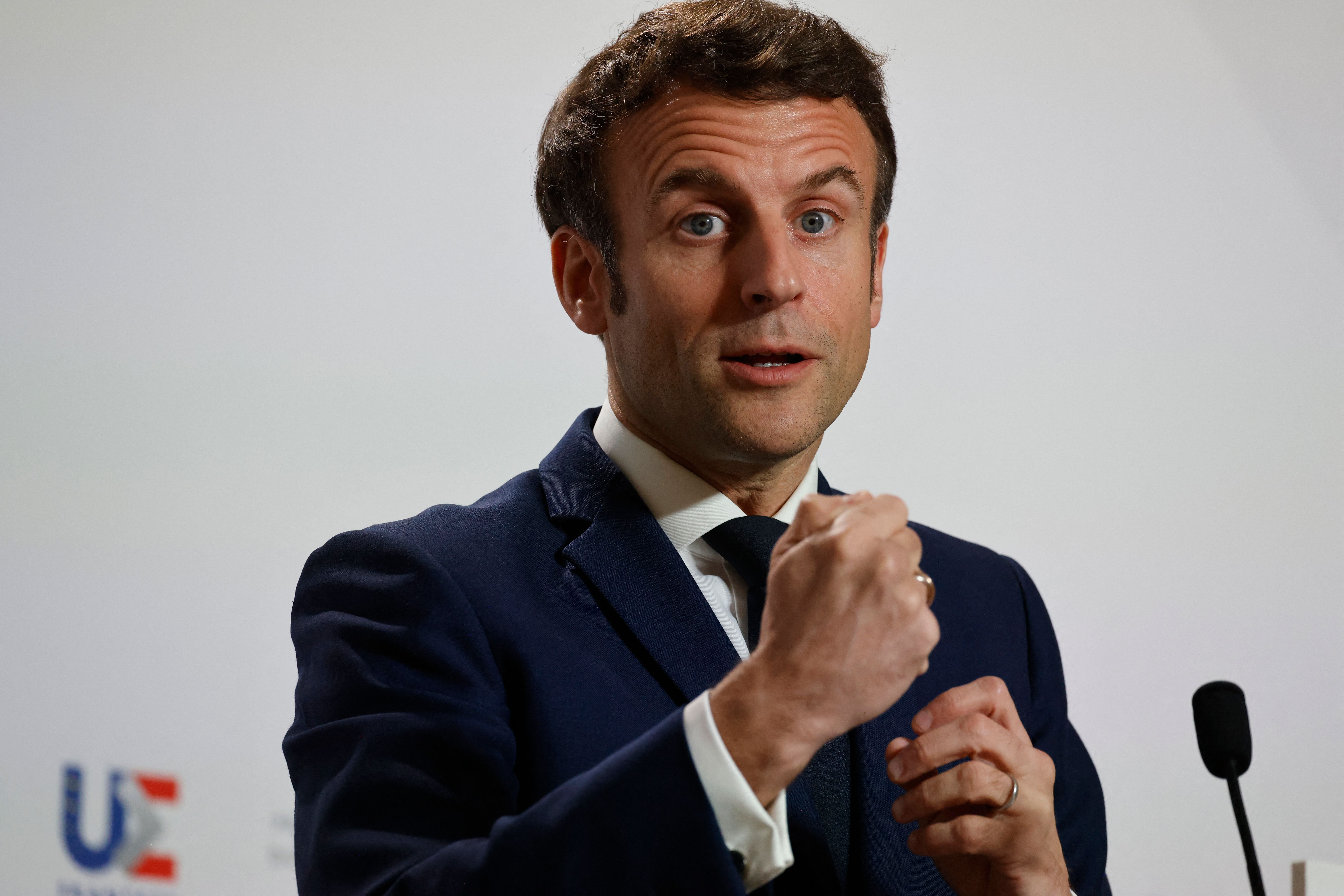
With just a fortnight until France’s presidential election begins, incumbent Emmanuel Macron is riding high in the polls, followed some way back by far-right challenger Marine Le Pen in second and pursuers including leftist Jean-Luc Mélenchon and Trumpian populist Eric Zemmour.
Barring any major unforeseen events, Mr Macron and Ms Le Pen will likely head off against each other in the second round of voting – in a repeat of 2017. On the surface, at least, it’s a case of plus ça change, plus c’est la même chose (the more things change, the more they stay the same).
But in reality, Mr Macron and the wider landscape of French politics have drastically changed in five years. Back then, the one-time banker presented himself as a liberal outsider who could disrupt fusty political tradition and push through business reform to create a bright and modern start-up nation.
“In 2017, Macron had audacity and pretension and projected an image of breaking up the status quo,” said Isabelle Le Breton-Falézan, an lecturer in French political science at the Sorbonne University.
“He was outside of the traditional left and right parties, and looked to occupy a space that transcended them,” she told The Independent.
As a candidate, Mr Macron, previously the economy minister in François Hollande’s centre-left government, spoke progressively on contentious issues such as the role of Islam and France’s colonial history, which has long been ignored by the state. In doing so, he gained significant support from the country’s centre-left.
That Mr Macron is unrecognisable today.
Earlier this month, the 44-year-old announced his policies for a potential second term at a grand, hours-long event before hundreds of journalists.
Macron is clearly a man of the right
No groundbreaking policies were among the proposals, which included €1bn (£12.5bn) tax cuts, the goal of “full employment”, and further spending on defence and the military.
Instead, there was a continuation of what he had started, such as the reform of pensions, the welfare state and the tax system, as well as hardening of security and the ongoing crackdown on “separatism” linked to France’s large Muslim population.
Yet many of Mr Macron’s proposals are remarkably similar to those of Valérie Pécresse, candidate for the traditional right party Les Républicains (LR) – including raising the legal retirement age to 65, scrapping the national TV licence, cutting inheritance tax and tightening access to unemployment benefits to push people back to work.
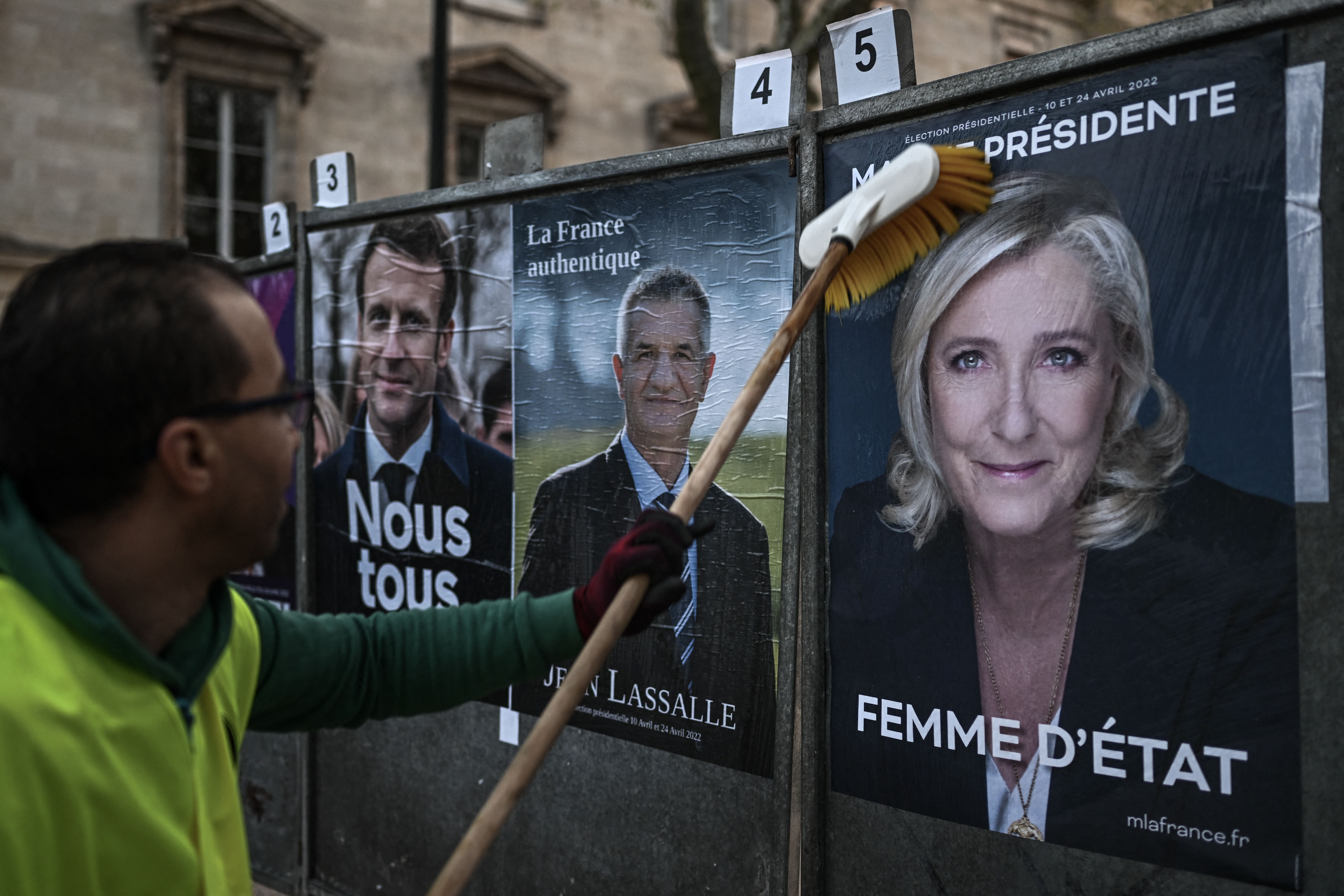
“It’s not a programme, it’s looting,” said LR politician Annie Genevard.
Anne Hidalgo, the mayor of Paris and candidate for the centre-left Socialist Party, said Mr Macron’s policies were no longer occupying the middle ground, but simply “right wing and right wing” and that he should “pay copyright to Valérie Pécresse”.
Ms Breton-Falézan believes the new policies are a confirmation of the president’s recent lurch towards the right since 2017. “After five years we have begun to understand his real programme,” she says. “He’s clearly a man of the right.”
The centre-left faction within the president’s La Republique En Marche party is concerned that voters will focus on the more conservative elements of his manifesto, sources told Reuters.
The far right has been dictating the agenda. I think that served Macron
Many analysts say that Mr Macron has shifted to the right due to cynical pragmatism rather than strong ideological beliefs – spying a more straightforward victory as the establishment figure versus far-right extremists.
“Under Macron, France has become even more unequal socially,” said Philippe Marlière, professor in French and European politics at University College London.
“So he’s been more comfortable on the subjects of the right like national identity and Islamist extremism than on the left on topics like health, education, public services.”
However, that approach has provided a platform for the far right to thrive domestically and gain widespread prominence, according to Aurelien Mondon, an expert in the political mainstreaming of the French far right at Bath University.
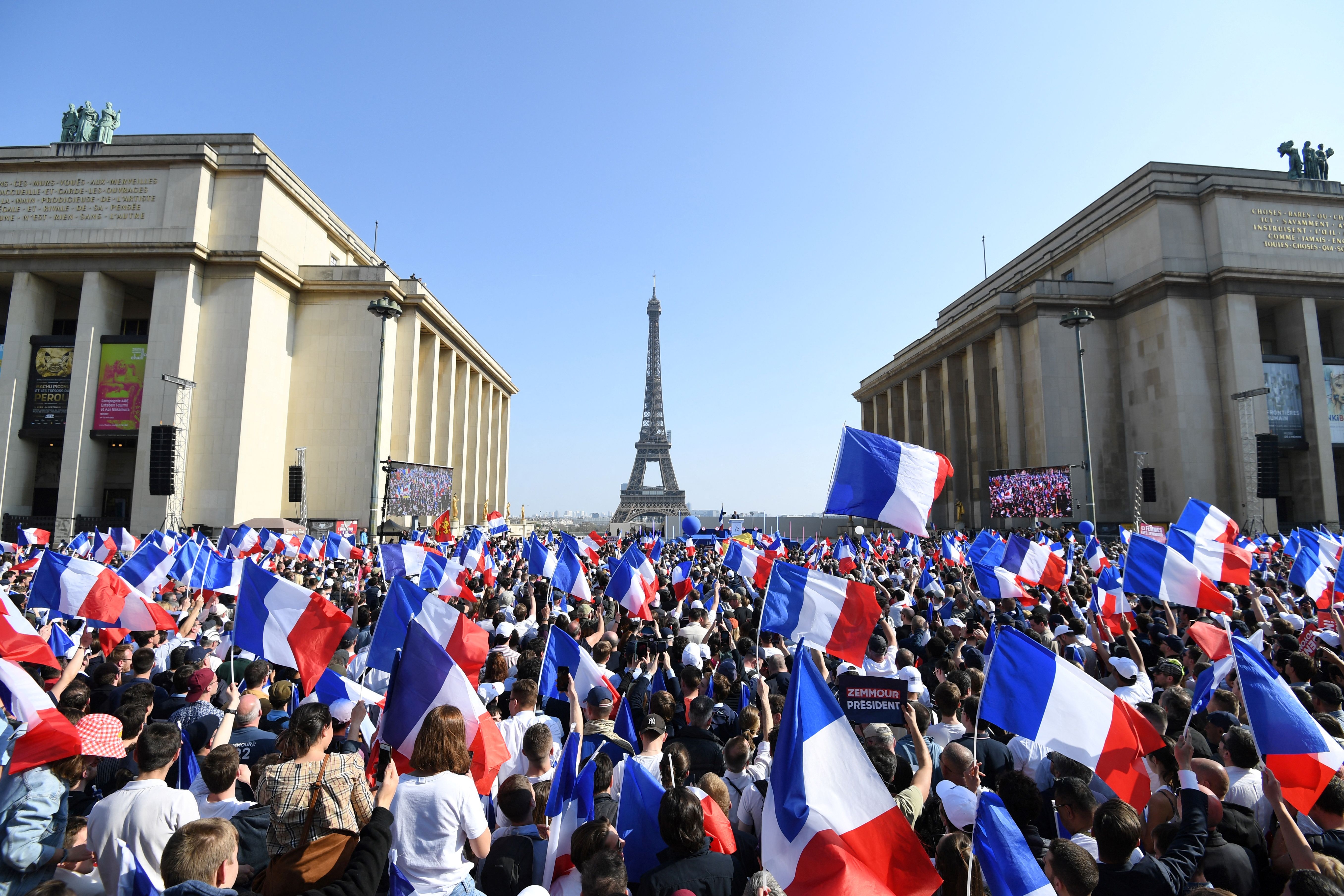
“The far right has been dictating the agenda,” he said. “I think that served Macron, because he has positioned himself as the bulwark against the far right. But the result is that by playing these extremists on their territory, they have gained legitimacy.”
Far-right frontrunners Ms Le Pen and Mr Zemmour have 20 per cent and 10 per cent respectively – some distance behind Mr Macron’s 28 per cent, according to a latest opinion poll on Monday conducted by Kea Partners for Les Echos and Radio Classique.
The Socialist Party, which was in power until 2017, is polling at around just 2.5 per cent with Ms Hidalgo, and Ms Pécresse of the LR is polling at 11 per cent. The leading leftist candidate Mr Mélenchon – who drew an estimated 100,000 supporters for a campaign rally on 20 March – has a projected 14 per cent of the vote share, which would not be enough to make the second round.
“The parties that used to dominate are nowhere to be seen,” said Mr Marlière. “It’s like in the space of one election, the Labour Party and the Conservatives falling into obscurity. It’s an unprecedented transformation.”
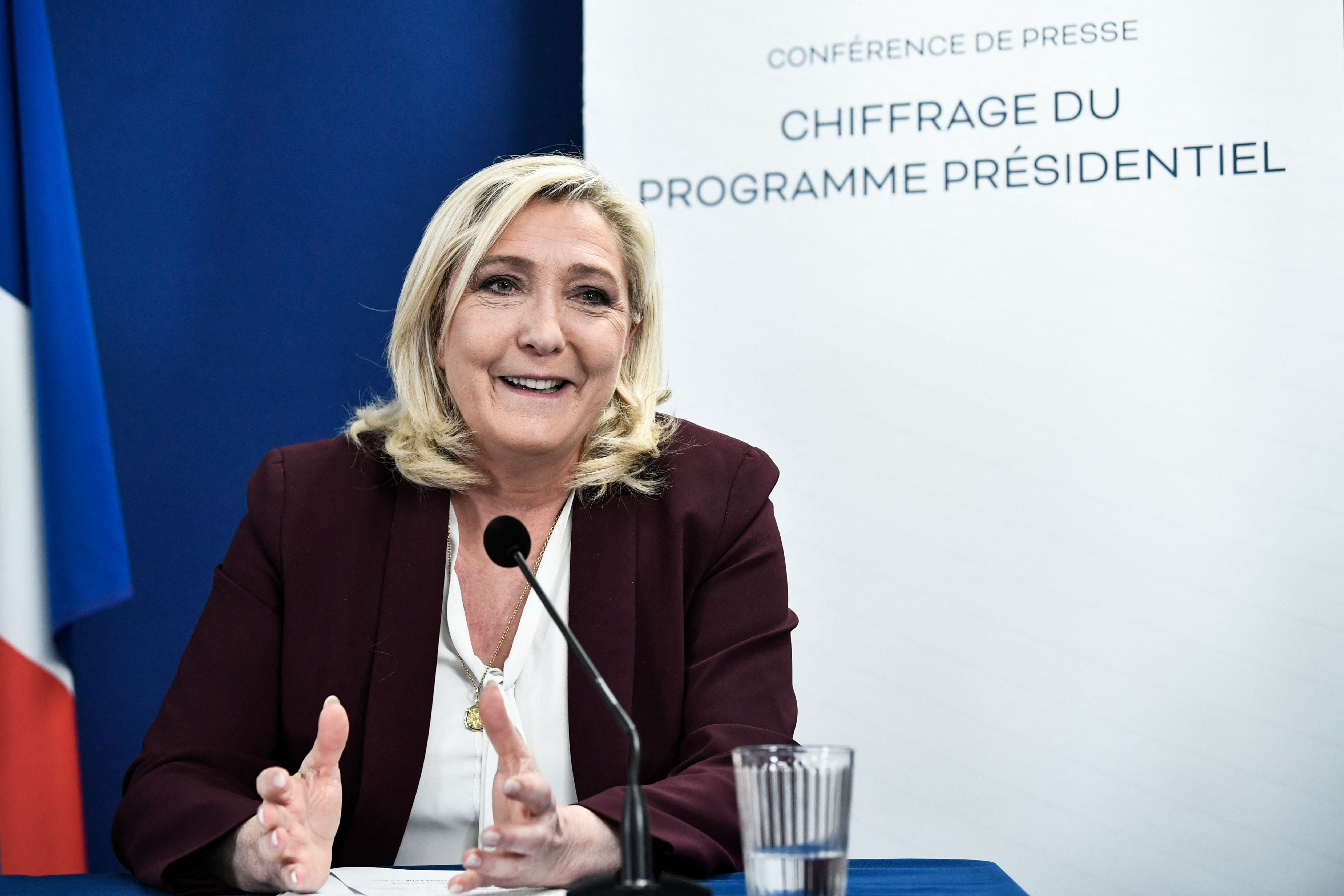
At the same time, Mr Macron’s avoidance of domestic concerns in the run-up to the elections – instead opting to project a statesmanlike figure on the global stage since the outbreak of Russia’s war in Ukraine – has led to concerns over democratic accountability.
Mr Macron, who has refused to debate other candidates before the first round, waited until the last day to declare that he would be running, taking maximum advantage of his role as president – including through a series of widely mocked, moody black and white portraits featuring plenty of stubble and rolled-up sleeves.
He agreed to participate in a TV programme involving eight of the 12 official candidates on the TF1 channel, but only on the condition that candidates could not share the stage and that they be interviewed separately. Even for Mr Macron’s first campaign outing on 8 March, which was touted as an “open” discussion with voters, it was revealed that questions had been screened.
“An easy win is on the cards for Macron at this point; it would take a major incident for him to not win,” said Mr Marlière. “But it could be seen as a victory by default. An empty victory. And once he’s elected the problems will start for him.”
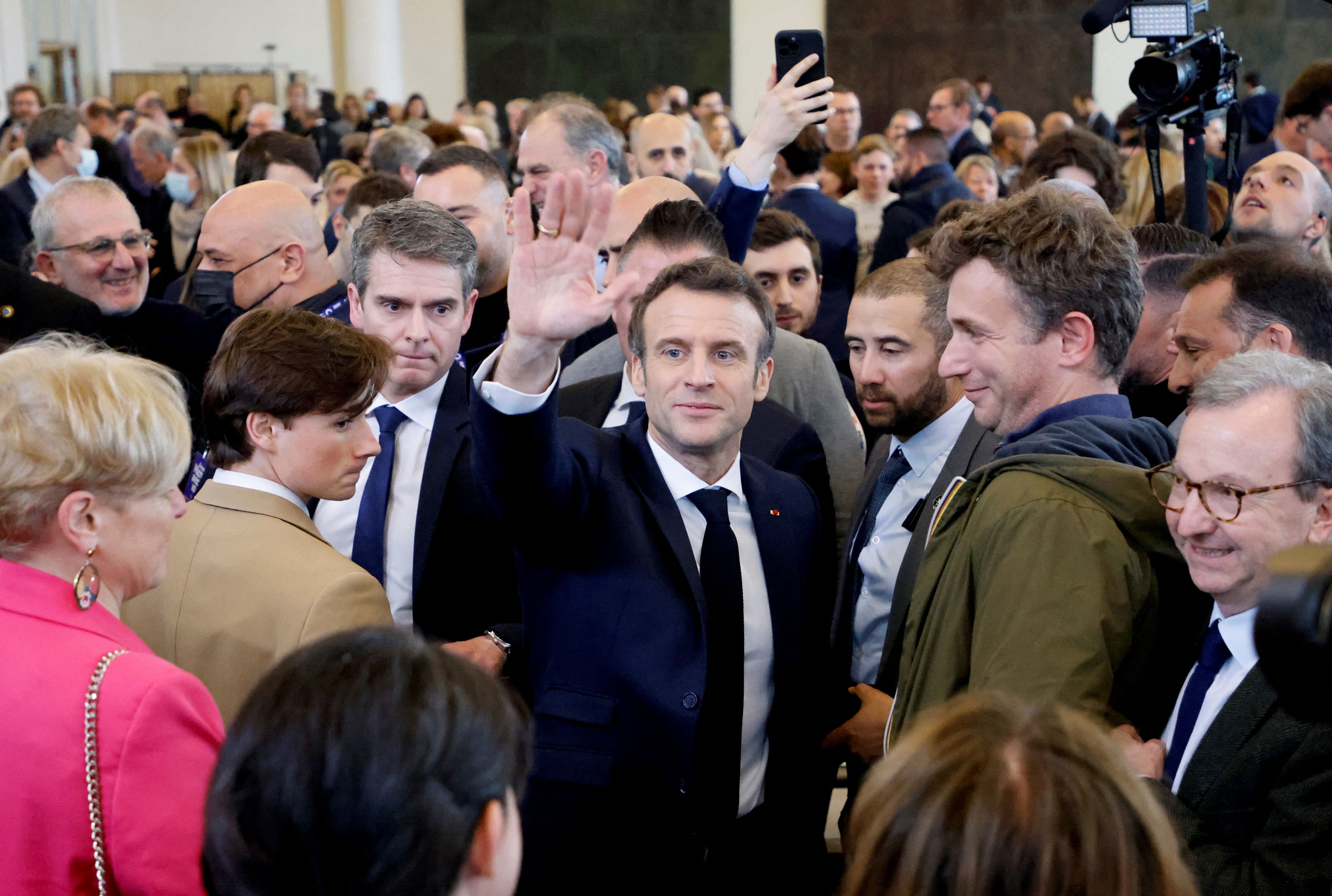
While the French public’s approval of Mr Macron has been boosted during the Ukraine conflict, mounting problems at home could soon boil over.
Food and petrol prices are rocketing, which has led to national strikes over wages and the blockade of fuel depots. Weeks of violent protests have rocked the island of Corsica – long home to a strong separatist movement – following the hospitalisation and then death of nationalist leader Yvan Colonna, who was beaten by a jihadist prison inmate, over the perceived failure of the state to protect him. Meanwhile, Mr Macron’s previous attempt to introduce pension reform in France drew 120,000 protesters in February 2020.
“Macron hasn’t been someone who has been ready to pay attention to the issues of the worst off in society,” Mr Marlière added. “His main answer to the gilets jaunes protests was to put more police on the streets. Now French politics is a lot more volatile. It could lead to a very explosive social situation.”
But as Mr Macron aims to become the first French president to win a second term in 20 years, there’s a more worrying historical parallel that dates back to 2002: that year saw France’s highest ever number of votes blancs, or abstentions, when far-right candidate Jean-Marie Le Pen stunned the country to reach the second round.
A recent Ipsos study suggested this election’s abstention rate could be even higher – at up to 35 per cent.
“We haven’t learnt any lessons from 2017, just as was the case in 2002,” said Mr Mondon.
“Macron will likely win, but it’s a massive gamble. And even then, how normalised will Le Pen’s and, to some extent, Zemmour’s ideas be?”






Join our commenting forum
Join thought-provoking conversations, follow other Independent readers and see their replies
Comments